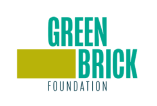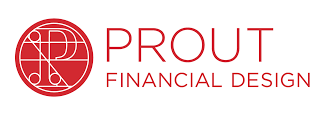By Anna Faller
December, 2017

Prolific author, Michael Taillard, was not always a writer — at least, not by trade. Taillard actually began college as a tuba performance major and part-time body piercer, but after taking his first economics course, he says, “everything just kind of clicked.” Taillard was initially drawn to economics by the possibility of being able to apply a math concept to real-world human behavior. And he was good at it. Now a reputed economic consultant, Taillard has authored eight full-length texts on a wide range of topics within his field, from the basic structures of corporate finance and economics, to exploring how these ideas might be applied to issues of economic geography, large-scale infrastructure, and even warfare. Taillard’s writings on the advancement of military strategy and conflict resolution have garnered formal recognition from the US Strategic Command, the US Chief of Staff of Army Studies Group, as well as countless blogs and podcasts.
Originally raised in suburban Detroit, Taillard’s young professional years were spent moving internationally. After he returned to the United States via Omaha, Nebraska, joined the Army, and built a primarily online career, Taillard and his wife were finally able to ask themselves where in the world they would most like to live.
Luckily for us, they chose the forests of northern Michigan.
Now a resident of rural Beulah, Michael Taillard took time out to answer a few questions about his work and upcoming endeavors.
How did you become a writer?
I’ve always had a penchant for writing. Ever since I was little, I enjoyed writing short stories. I always seemed to get praise for them from my teachers, and anyone who was reading them seemed to enjoy them, which was validation enough for me that they were, at least, reasonably good for the age at which I was writing them. As I got older, and especially in junior college, an English professor took notice of some sample writings and decided to put me in charge of a non-credit English and writing class. That was actually when I first started teaching: English, and writing, and literature, and so forth for a non-credit course in 2002. That’s really where things got started, and when I really started taking writing seriously: because someone started offering me money to do it.
What is your writing process? Tell us about your typical writing day.
There is a process, but I have no routine kind of writing day. The process is one of essentially, starting by researching the topics at hand, and doing lots of investigation, and just brainstorming – lots of brainstorming. Writing everything that could even possibly be relevant: quotes, specific words, sentences, and paragraphs, writing lists of topics you’d like to discuss, and just making sure you have everything possible on paper. Once you’ve got a sufficient amount of content down, then trying to organize it. I’ll find that there’s clusters of concepts that go together that really complement each other, and at that point, I start to put things in order and organize things, until there’s a general outline of total gibberish. But, there is a flow to it – not just an outline of topics, but an outline of everything that has a consistent flow. Then from there, I take that skeleton and fill it out, making sure to include anything that I really thought was a good sentence. Sometimes you’ll write down a sentence or paragraph, and think, “that was really good; I need to put that in the book somewhere.” And from there, I just fill everything in – the broad concept of where you want to go with the book, and then breaking it down into chapters. At least in nonfiction writing, the publishers sometimes like individual chapter submission, anyway, so it’s good to break things down into manageable bits. I like to write chapter by chapter, so I can keep my mind on one specific element of the book at a time, and focus on it that way. As you go, if the publisher wants you to submit a particular percent of the book within six months, three months, whatever, then you’re good to go at that point and things just kind of work out.
You just released a new book, Aspirational Revolution: The Purpose-Driven Economy, in September. How would you describe it? What was your motivation for writing it?
The inspiration behind lots of things I write is equal parts boredom, deadlines, and a mish-mash of ideas that should never have been put together in the first place – kind of like a platypus, I suppose. Aspirational Revolution was inspired largely by a combination of revelations about problems in our national and global economy, and the desire to find the solutions for them. That’s where the book came into play. The only way to express and communicate the concepts behind these solutions properly was to actually split the book into two parts: the back half is where we get into the logistics of how we can get our economy rolling again, but the first half is entirely composed of the human element – the human experience, what it means to be human, and what it means to pursue our own survival instincts. It takes you from the hunter-gatherer era of humanity, all the way to the modern era, and how the experience of being human has changed. I then interview people whose own life stories exemplify each element of what drives us – what inspires us to become better than what we are, and to pursue our passions. So, we look at the economy and everything is becoming automated, often through artificial intelligence. I can even see it in my own field. When doing consulting work, traditionally, economists would collect data, analyze it, produce reports, and so forth – conduct scientific research. But more and more, economic work consists almost exclusively of building computer algorithms that automate this entire process. The real drive there is the fact that we are moving towards the direction of not necessarily producing, because we’re automating all production. Instead, the new human experience we’re working towards its one of creativity and innovation and continuous flow of new developments. Before, we had the agricultural revolution: per capita growth reached its maximum, and then the industrial revolution hits and per capita growth exploded. At that point, there was more stuff per person, but now that’s falling to pre-industrial levels again. So, how do we get to that next step? Achieving the next step has always relied on innovation – has always been some new form of innovation and a creative form of understanding the world around us. Since all of our own production now is automated, we will simply be in the continuous pursuit of innovation and knowledge and progress. At that point, the sky really becomes the limit.
What do you hope your readers might take from this book?
In the very beginning, even in the foreword or the introduction somewhere, I encourage every reader, everyone who buys the book, when they’re done with it, to give it away to someone else, just for free. That way, the maximum number of people are reading it and understanding it. The entire point of this book is not about sales or money, but the distribution of information and knowledge. I’m hoping that the book will act as a catalyst for people to understand where our growth comes from and the importance of sharing our knowledge and sharing the information we have – how that is the very source of innovation. You get information from someone else, and then you incorporate that into your own unique set of experiences and perspectives, and turn it into something brand new: that is where innovation comes from. I encourage people to share this book. When they’re done with it, give it to someone else who hasn’t read it and let them read it. In that way, we are distributing this information as far and wide as possible and encouraging as many people as possible to share their information and experiences with as many people as they can, without any expectation of getting something in return. What we actually get in return is the progress we develop. Share your information and experiences with others, and allow that to let us grow as a society.
I noticed that your Modern Warfare trilogy, as well as Aspirational Revolution, are all selling for more than $80, while Corporate Financing for Dummies (which you mentioned is often a textbook staple for college students) is just over $20. Why the price discrepancy?
The publishers will tell you that they’re different markets. That the Dummies book is geared toward a “general audience” (the general public), while some of my other books are marketed to an “academic audience” (professionals who specialize in the field a given book is about). Personally, I think the publishers are dumb for charging so much. They’ll argue that its a matter of “prestige,” but nobody is paying their bills in prestige – not even them. Drop the price, sell more books, and everyone gets more money and exposure, right? Well, if you go to Barnes and Noble or a lot of other booksellers, the price of some of these $100+ books have now dropped to under $30, so at least they become affordable after a while. You might be wondering whether or not the books are still being marketed or noticed after a few years and the price has gone down. To a degree they are, but that’s why I started pitching some 2nd editions – use the publicity of the new books to promote the affordable 1st editions, and generate royalties on both. Right now I’m contracted to write a 2nd edition of Economics and Modern Warfare and need to have it done by April 1 (no, it’s not a prank). It’s going to be roughly 50% new material, with a brand new chapter dedicated to the conflict over Kashmir, and they’re going to sell it for $100+ dollars a copy, just like they did with the 1st edition. People who are really dedicated to the topic will buy the new one, while everyone else will buy the 2nd edition.
How has your experience as a predominantly nonfiction author informed your fiction writing?
Being involved in topics of nonfiction really can help you avoid the pitfalls of writing fiction. Right now, for example, I’ve been working on a fictional labor of love. It will be a sci-fi horror trilogy. It’s entirely fictional, and I’m working on it slowly, but it’s turning out great! In building these roles and characters, and making sure everything turns out just right, knowing lots about psychology, economics, and the way the brain works and how society works has really added a dimension of realism to the story you don’t always get. Knowing your nonfiction is also helpful in avoiding dumb, scientific pitfalls: like in The Matrix, for example, where humans are batteries, which is totally preposterous. Knowing your nonfiction can definitely augment your fictional stories, too. Like, in the movie Gravity, they’re stuck in space, just being thrown around in outer space – the whole thing was just kind of ridiculous. It got completely canned by the scientific community and didn’t do nearly as well as it could have. By comparison, Interstellar emphasized scientific accuracy and was praised for it. So, knowing your nonfiction can really elevate your fiction as well; don’t reject nonfiction just because it’s real. Adding as much reality as possible to your story gives your reader reference points that they can relate to and really brings them into the story in a way that they wouldn’t be able to experience, if it were something completely off the wall.
What authors would you say have been most influential in your writing?
The content of my writing is based in my field of expertise. My inspiration for the process and the actual writing itself comes from a few authors, in particular. I’m a big fan of the quality academic style, that “old school” feel of HP Lovecraft; the cool nihilism of Franz Kafka; even the paranoid, bizarre approach that you get from Philip K. Dick. You wouldn’t think that with nonfiction books, you would have a whole lot of opportunity to incorporate this sort of thing, and I thought that myself, at first. The first book or two that I wrote were extremely dry, and to be honest, not very good – very popular, but not very good. As I got more comfortable in my writing and in being an author, I learned how to incorporate some of these influences into my writing. You really start to see that more in my upcoming piece, entitled Market Insanity, which is not even out yet. It’s a nonfiction topic, but I get to have lots of fun with the audience – taking them through explanations or examples that make them question whether or not the author is sane, or whether or not they believe what they’re reading. I include examples that are completely fictional themselves and can be lots of fun, but which also exemplify the points that are trying to be made. More and more you find that you’re able to incorporate some of these fictional elements.
Do you have any advice for aspiring writers?
Read. Read everything. Read everything you can get your hands on. Read a variety of things – different styles, authors, and genres. Just read as much as humanly possible. For example, a lot of really good writing these days goes into things like video games. If you’re a gamer, when you’re playing video games, don’t just focus on or worry so much about the action of the game or the graphics. Instead, really focus on the story line and the character interaction and things of that nature. With everything you do, really focus on how things are progressing. What is the plot progression? How are characters profiled., and what are they actually like? What are each of the character’s hopes and dreams? What drives the people and the plot? What are the themes, and why has the author chosen those particular themes to be associated with this part of the plot or these characters? Why was this name chosen for this character? There are reasons behind all of these things – they are not random decisions being made.
About the author: Michael Taillard is a native of Livonia, Michigan, but has since settled several hours north. A self-proclaimed “puzzle-solver,” Taillard’s first recognition within his field came shortly after a spoof documentary exploring the possible outcomes of a theoretical zombie apocalypse in 2011. Since then, the infamous “econozombist” has donned the hats of both author and consultant. With a PhD in financial economics, Taillard is also a touted university professor, and maintains academic programs at both Bellevue and Central Michigan universities. Other publications by Michael Taillard include bestsellers Corporate Finance for Dummies, a staple textbook for financial mathematics and accounting students, and 101 Things Everyone Needs to Know About the Global Economy, both of which hit the market in 2012. Taillard is also the driving force behind the non-fiction Modern Warfare trilogy: Economics and Modern Warfare, Psychology and Modern Warfare, and Analytics and Modern Warfare, which collectively explore the “possibility of ending warfare altogether by using methods more effective than traditional combat.” Taillard’s next publication, another non-fiction piece, entitled Market Insanity: A Brief Guide to Diagnosing the Madness in the Stock Market, is due to be released in August of 2018.






